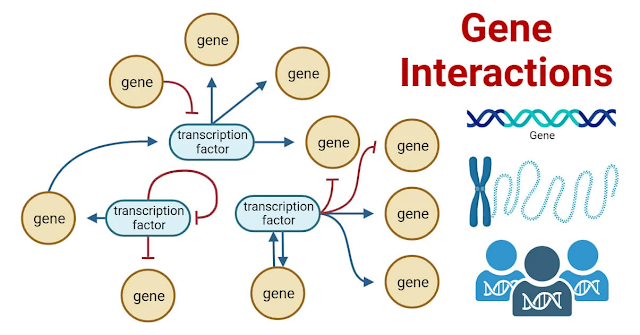How Genomics Impacts Health and Medicine
Exploring the Role of Genomics in Health and Medicine: A Guide for Students
Genomics has rapidly become a transformative field, shaping new perspectives and advancements in both healthcare and public health. By investigating the structure, function, and interactions of genes, genomics provides professionals—scientists, physicians, and public health experts—with the ability to approach human health with a unique, highly personalized insight. This article explores the significant role genomics plays in personalized public health and clinical medicine, offering innovative approaches to both individual and public health challenges.
 |
| Credit: microbenotes.com |
Precision Public Health: The New Pathway
Precision public health is an emerging interdisciplinary field that integrates genomics, big data, and tools like artificial intelligence (AI) or machine learning (ML) to predict health risks and outcomes for communities. Similar to how precision medicine aims to deliver the right care to the right person at the right time, precision public health strives for targeted interventions for specific groups at optimal moments. This model supports accessible, personalized healthcare that benefits individuals across diverse backgrounds.
 |
| Credit: Image: Gene Editing Tool |
Through precision public health, genomic data enables tailored health interventions for particular communities based on genetic susceptibility, health trends, and possible vulnerabilities. For instance, imagine a community at higher risk for certain health conditions due to genetic predispositions—precision public health can guide personalized strategies that improve health outcomes and reduce overall healthcare costs.
Genomics in Public Health: Changing How We Address Diseases
In clinical medicine, genomics plays a pivotal role in innovation, with applications ranging from detecting genetic mutations to understanding disease development and predicting how various groups may respond to treatments. During the COVID-19 pandemic, for example, genomics enabled scientists to trace the virus’s spread and evolution, leading to informed, timely responses. It also helped identify factors that made some people more vulnerable to severe outcomes, thus guiding targeted treatment plans based on genetic profiles. This has demonstrated the value of genomics in addressing both infectious and chronic diseases.
 |
| Credit: Stephenson Mansell Group |
The Role of Big Data, Digital Technology, and AI
Genomics is deeply connected to data sourced from population surveillance and mobile health technologies. When integrated with big data from these platforms, genomics allows for disease mapping and the identification of factors that affect disease progression. With digital health tools and mobile apps now essential for monitoring health, especially during the pandemic, these technologies enable real-time tracking of symptoms and interactions. AI and ML then analyze this information to find patterns and predict health risks, enabling responsive, data-driven public health interventions.
The Future Impact of Genomics in Health
As genomic technologies continue to evolve, they are expected to further influence public health by enabling more efficient responses to outbreaks, lowering rates of genetic diseases, and supporting personalized health programs to preempt illness. For students in the field, genomics offers exciting possibilities to engage in groundbreaking research that will help define the future of health and medicine.
 |
| Credit: University of Bristol |
Key Takeaway
Genomics is reshaping how we understand and manage health at both personal and population levels. With precision public health advancing targeted care, and big data and AI facilitating genomics integration with daily healthcare, this field holds immense potential. For students, genomics represents a dynamic area of study, ripe with opportunities to make significant contributions to medicine and public health.


